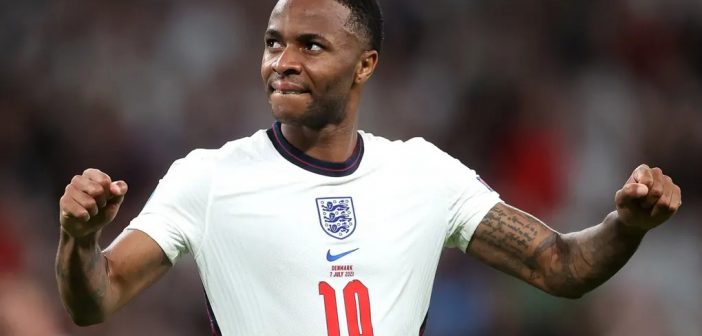Raheem Sterling was only starting out but Queens Park Rangers, who had signed him in 2005 just before his 11th birthday, knew what they had. According to Joe Gallen, the head of youth development at the time, it was something special. And so he would go out of his way to ensure that the young Sterling was as happy and comfortable as possible.
Gallen, now the assistant manager at Leyton Orient, enjoyed chatting to Sterling in his office at the training ground in Harlington, sometimes just the two of them, other times with the protege’s mother, Nadine. He would ask Sterling how school was going, how his family were; there would be football tips, words of encouragement. One day, though, Sterling had something to get off his chest.
“Raheem said that he didn’t think the coach was any good,” Gallen says. “It was as blunt as that, really. He was about 12 and it was quite a statement for someone of that age to come out with. I asked him why and he just said he didn’t think he was up to standard, the training wasn’t good enough.”
And here is the thing. Gallen looked into it, secretly watching a couple of the sessions and realised that Sterling was right. The team would soon have another coach.
“I was very surprised because when I was chatting to Raheem, it was about his school, how his mum was, that type of thing,” Gallen says. “I was not expecting nor asking for that. He didn’t say it in a rude way, it was in a very considered, steely way. He had that steeliness about him even then. He said it quietly but it carried a little bit of weight.
“For a 12-year-old to come out and say that and to be correct – that’s the key. I worked in the schoolboy section and youth development for the first 10 years of my coaching career and I never, ever saw anything like that.”
It is at times like these, as Sterling cuts a swathe through Euro 2020, doing more than any other player to drive England into Sunday’s final against Italy, that such anecdotes carry a particular resonance. Even as a kid Sterling knew what he wanted, what he needed and he was not afraid to act on it. Just as now he has known what England have needed – an experienced player to impose his quality and personality on the tournament.
Apart from in the 0-0 group phase draw against Scotland, when every England player struggled, Sterling has fearlessly delivered, his performances never lower than an eight out of 10.
The Manchester City forward was decisive once more in Wednesday’s 2-1 semi-final victory over Denmark, tearing into his opponents from first to last, forcing the own-goal equaliser from Simon Kjær and winning the penalty from which Harry Kane converted a rebound. Previously at the finals, Sterling had three goals and one assist. Gareth Southgate talked after the Denmark tie of how his team had found a way to win even if it was a bit of a battle. His talisman is the epitome of remorselessness.
Sterling’s path in the game would have been different were it not for John O’Brien, who was responsible for bringing him to QPR. The club’s head of youth recruitment at the time, who also worked for Wycombe Wanderers, Arsenal, Liverpool and Fulham before his death in 2015, had repaired and finessed relationships with key youth football figures in the London borough of Brent, meaning that the top players would again be sent to QPR for trials rather than elsewhere.
“It annoyed me that the best kids in Wembley and Brent, where Raheem grew up, were going to Watford,” Gallen says. “Because I regard that area as being in west London and being QPR territory. John got our relationships back on track and without that the lads who came in at the time wouldn’t have come in, including Raheem. John was a proper scout, very well respected. Shirt and tie, looked like a businessman, always immaculate.”
Gallen can still picture Sterling’s first trial game for QPR, in which he scored a hat-trick. The following weekend, he was invited back and scored more goals.
“I watching with my brother, Steve, who was a part-time member of the staff, and I said to him: ‘Wow, that’s Ian Wright,’” Gallen says. “I was thinking: ‘He’s a bit small but that finishing and the speed …’ I told the club secretary, Terry Springett, that we had to sign him right away. That’s when we got Raheem’s mum in, we discussed our plan for him and we were able to get him on a five-year registration contract.”
The length of the deal protected QPR and it meant that, when Liverpool took him away as a 15-year-old, the London club collected a big fee. “I’m told it added up to more than £10m,” Gallen says.
Gallen remembers going to the Brent Cross shopping centre and buying Sterling a tracksuit and boots – “the look on his face, and his mum’s,” he says. And, if Sterling was not always an angel, Gallen was ever-keen to support him.
“They were on the minibus coming back from a game, it was driven by the coaches and there was a big hoo-ha,” Gallen says. “Whatever happened and I don’t think it was very good, if I’m honest, there was a clamour for me to get rid of the three or four kids who had been really messing around, including Raheem. But I just said to Terry [Springett]: ‘Tell that lot they can all go before Raheem is going.’”
Source: The Guardian

